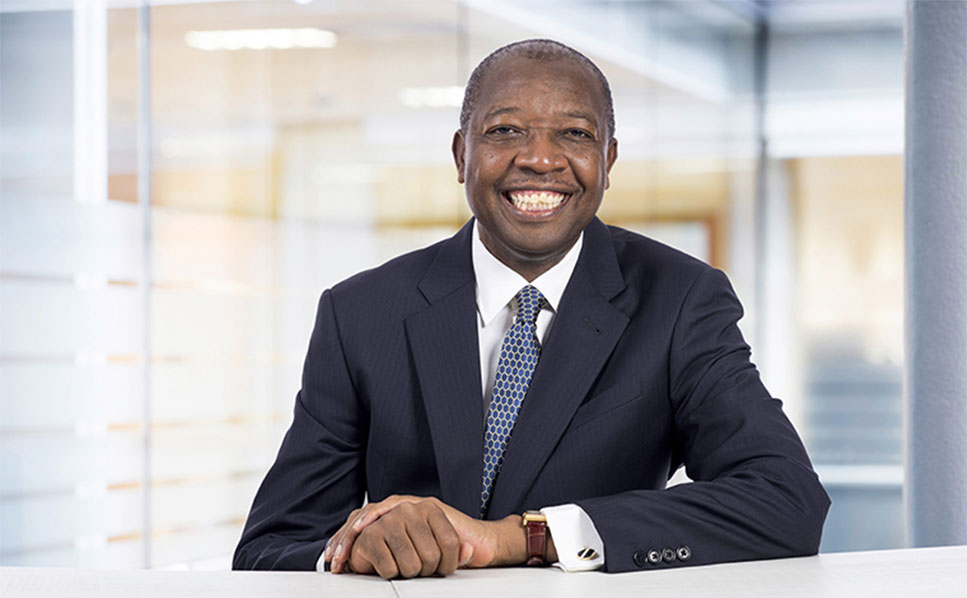What does this have to do with us? This year, Anglo American announced its purpose, which is to Re-imagine mining to improve people’s lives. A good education is key to improving people’s lives. It will enable us to deal with many of the challenges we have as a country. We talk about inequality, unemployment, and poverty – these are issues that can start to be addressed if education is improved.
So our purpose is really exemplified in education and it is in line with our strategic imperative of building thriving communities – it’s an area where we’ve been making substantial investments through resource and skills development for years. But now we’re turning our focus and investment to the most critical education needs within our communities.
I’m delighted to tell you that today, we have officially launched the Anglo American South Africa Education Programme, in partnership with the Department of Basic Education.
The new programme will focus on 100 early childhood development (ECD) sites local to our operations, as well as a “Whole School” systemic approach for 100 primary and secondary schools in these areas. All of these schools are “no-fee” schools. In other words, the communities in which they are located do not have the means to pay school fees, and therefore the schools simply don’t have the resources that many other schools do.
There are many reasons for the poor educational outcomes in some of these schools: poorly functioning institutions, wasted teaching and learning time, school leadership who require support, teachers needing assistance with some content knowledge and how best to teach certain subjects, as well as a lack of access to resources and teacher support material such as textbooks and workbooks. Such schools could always do with more support from parents, governing bodies and local communities.
With this programme, we want to improve the learners’ educational outcomes, particularly in reading, writing, and numeracy in Primary Schools. We want to give the children in our local communities access to excellent education. But we’ll be doing it in a measured and concerted way.
Each school has different challenges and we’ll be listening closely to schools and their communities, to find out what their real challenges are and how we can best assist. Sustainable improvement requires that we persevere and work with each school over many years, things will not change overnight.
We’ll bring in experts who will help the schools to run as schools. Every school must have what I call a drumbeat. From the time the school bell rings and shortly thereafter the kids are sitting at their desks, and have started schooling for the day. Once we have that rhythm, we can get the kids through their entire syllabus by the end of the year. So just helping the school to run “like clockwork” is very important.
We’ll also be supporting school management teams, governing boards, principals and teachers. We’ll help them develop their content knowledge and teaching skills – how to teach reading for understanding, how to teach bigger classes, even how to teach children how to hold their pencils, colour in and learn numbers. We’re literally partnering with the DBE to assist teachers in the classroom.
And then we’ll measure the impact of what we want to achieve. Following the DBE goals, we have set ambitious learner-focused targets:
EARLY CHILDHOOD DEVELPOMENT
- 90% of learners (aged 5 years) are school ready
PRIMARY SCHOOL
- 90% Gr3 learners pass with at least 50% in Numeracy
- 90% Gr3 learners pass with at least 50% in Literacy
- 75% Gr6 of learners pass with at least 50% in Mathematics
- 75% Gr6 learners pass with at least 50% in English First Additional language
SECONDARY SCHOOL
- 65% Gr9 Learners pass with at least 50% in English First Additional Language
- 65% Gr12 learners pass with at least 50% in Mathematics
- 90% Matriculation pass rate
- 50% Bachelor Degree (University Entrance) Pass
In the words of Nelson Mandela: “Education is the great engine of personal development. It is through education that the daughter of a peasant can become a doctor, that the son of a mine worker can become the head of the mine that a child of farm workers can become the president of a great nation. It is what we make out of what we have, not what we are given, that separates one person from another.”
Together, we can re-imagine mining to improve people’s lives.


